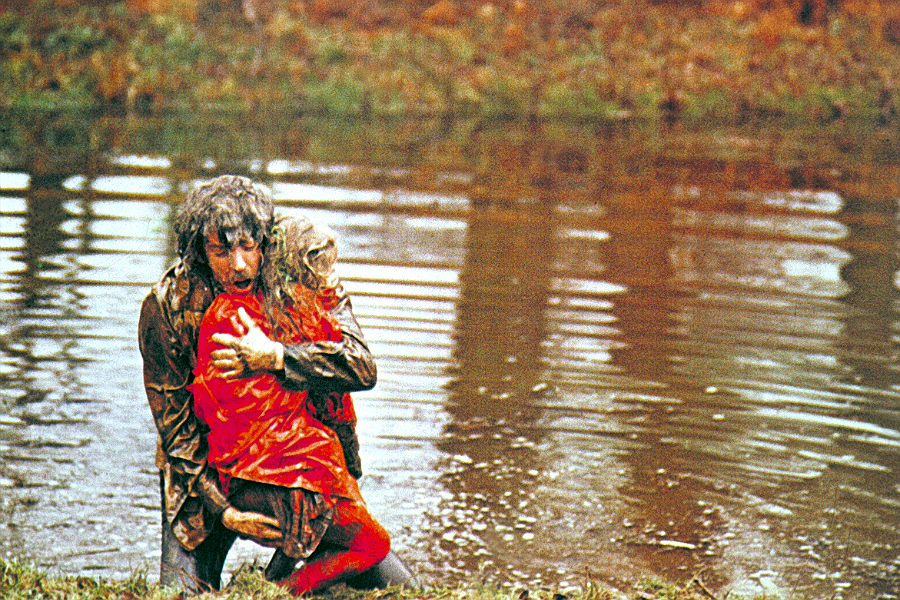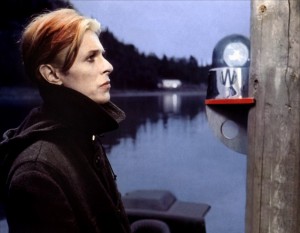In Profile: Nic Roeg

The Man Who Fell to Earth illustrates perfectly the rich if incongruent career of director Nic Roeg…
In every sense of the word, Nicholas Roeg has had a remarkable career. Before making his directorial debut, the Englishman already had more than two decades under his belt in the film industry. And we’re not talking slumming around, working in low budget, made-for-TV stuff, either.
Beginning his career as an editing apprentice, he would go on to be a mainstay of the British film industry; first drawing attention as a second unit cinematographer on David Lean’s Lawrence of Arabia in 1962, then later as fully fledged cinematographer on Roger Corman’s The Masque of The Red Death and Truffaut’s Farenheit 451.
As we said, he was hardly scratching around for work or recognition here. The apprenticeship served him well, and he would later say that “I can’t think how anyone can become a director without learning the craft of cinematography”.
In 1970, he made that leap by co-directing (with Donald Cammell) Performance; starring Mick Jagger, Warner Bros. wrongly assumed they had a Rolling Stones version of the previous decade’s Beatles film, A Hard Day’s Night, on their hands.
It’s safe to say that what the unwitting studio got instead was quite different from expectations. Instead Roeg (responsible for much of the photography on Performance he’s credited with the film’s striking aesthetic) and Cammell served up a visually daring depiction of London’s grimy underbelly, with all the drugs, sex and violence that entailed.
Initially meeting with lukewarm to downright frosty reviews, the film has come to be considered a cult classic, the writer and critic Mark Cousins going so far as to say, “Performance was not only the greatest seventies film about identity, if any movie in the whole Story of Film should be compulsory viewing for film makers, maybe this is it.”
A year later came the offbeat, and sometimes overlooked, Australian outback-set Walkabout. Starring Jenny Agutter, stranded in the wilderness with her younger brother (played by Roeg’s son, Luc), the critic Roger Ebert called it “one of the great films … Is it a parable about noble savages and the crushed spirits of city dwellers? … I think it’s about something deeper and more elusive: the mystery of communication.”
Growing in confidence, 1973 saw the arrival of the film Roeg perhaps continues to be best known for. Don’t Look Now (adapted from the short story by Daphne du Maurier) charts the journey – geographical and emotional – of a married couple (played in suitably haunted fashion by Julie Christie and Donald Sutherland) who escape to Venice following the tragic death of their daughter (above).
While there, they each experience difficult to explain (and to come to terms with) phenomena seemingly linked to their daughter’s demise – each deals with the considerable fallout in different ways. Part thriller, part essay on the impact of grief on a relationship and the psyche, Don’t Look Now can justifiably be called a masterpiece.

This brings us to his next film, The Man Who Fell to Earth (screening at FACT this evening). If perhaps not in the same class as his Venice-set Magnum Opus, as with so much of Roeg’s output, it remains anything but ordinary. Adapted from the book of the same name written by Walter Tevis (The Hustler, Mockingbird, The Color of Money), The Man Who Fell to Earth follows the eponymous alien Thomas Jerome Newton, on Earth to source water for his dying planet.
Hardly your typical sci-fi, though the film does dive wholeheartedly into the extra-terrestrial nature of Newton (played very straight by the perfectly cast David Bowie), it is just as interested in teasing out questions around isolation and existentialism – essentially what it means to be human when everything around you feels alienating.
Viewed through that prism rather than the more obvious issues the narrative surface suggests, The Man Who Fell to Earth becomes a different proposition entirely. This theme of delving beneath the obvious is a welcome one, but hardly a surprise when you consider the following quote, suggesting Roeg is a director giving his audience the credit they are so rarely granted at the multiplex.
“People usually arrive to see something with an open mind. I want to make them feel something emotionally, but not by planning how to get them there. That would almost be like the communist days when newspapers told people what to think – when there was no competition with Pravda.”
Since Bad Timing, his final film of the seventies, Roeg continued to be prolific – if a little more patchy (his last film, 2007’s Puffball, was described by the Observer critic Philip French as “slight and uncharacteristically straightforward”). But that’s still not bad for a guy who happily admitted of his education: “I didn’t go to film school and just learned all this on the floor.”
The Man Who Fell to Earth screens this evening 6pm @ FACT





